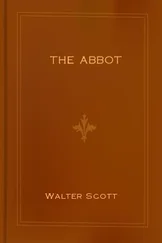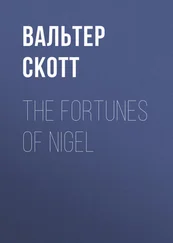Walter Scott - The Fortunes of Nigel
Здесь есть возможность читать онлайн «Walter Scott - The Fortunes of Nigel» весь текст электронной книги совершенно бесплатно (целиком полную версию без сокращений). В некоторых случаях можно слушать аудио, скачать через торрент в формате fb2 и присутствует краткое содержание. Год выпуска: 2004, Жанр: Исторические приключения, на английском языке. Описание произведения, (предисловие) а так же отзывы посетителей доступны на портале библиотеки ЛибКат.
- Название:The Fortunes of Nigel
- Автор:
- Жанр:
- Год:2004
- ISBN:нет данных
- Рейтинг книги:3 / 5. Голосов: 1
-
Избранное:Добавить в избранное
- Отзывы:
-
Ваша оценка:
- 60
- 1
- 2
- 3
- 4
- 5
The Fortunes of Nigel: краткое содержание, описание и аннотация
Предлагаем к чтению аннотацию, описание, краткое содержание или предисловие (зависит от того, что написал сам автор книги «The Fortunes of Nigel»). Если вы не нашли необходимую информацию о книге — напишите в комментариях, мы постараемся отыскать её.
—SIR PHILIP SIDNEY
The Fortunes of Nigel — читать онлайн бесплатно полную книгу (весь текст) целиком
Ниже представлен текст книги, разбитый по страницам. Система сохранения места последней прочитанной страницы, позволяет с удобством читать онлайн бесплатно книгу «The Fortunes of Nigel», без необходимости каждый раз заново искать на чём Вы остановились. Поставьте закладку, и сможете в любой момент перейти на страницу, на которой закончили чтение.
Интервал:
Закладка:
Author of Waverley. I was willing to see you, Captain Clutterbuck, being the person of my family whom I have most regard for, since the death of Jedediah Cleishbotham; and I am afraid I may have done you some wrong, in assigning to you The Monastery as a portion of my effects. I have some thoughts of making it up to you, by naming you godfather to this yet unborn babe—(he indicated the proof-sheet with his finger)—But first, touching The Monastery—How says the world— you are abroad and can learn?
Captain Clutterbuck. Hem! hem!—The enquiry is delicate—I have not heard any complaints from the Publishers.
Author. That is the principal matter; but yet an indifferent work is sometimes towed on by those which have left harbour before it, with the breeze in their poop.—What say the Critics?
Captain. There is a general—feeling—that the White Lady is no favourite.
Author. I think she is a failure myself; but rather in execution than conception. Could I have evoked an esprit follet , at the same time fantastic and interesting, capricious and kind; a sort of wildfire of the elements, bound by no fixed laws, or motives of action; faithful and fond, yet teazing and uncertain——
Captain. If you will pardon the interruption, sir, I think you are describing a pretty woman.
Author. On my word, I believe I am. I must invest my elementary spirits with a little human flesh and blood—they are too fine-drawn for the present taste of the public.
Captain. They object, too, that the object of your Nixie ought to have been more uniformly noble—Her ducking the priest was no Naiad- like amusement.
Author. Ah! they ought to allow for the capriccios of what is, after all, but a better sort of goblin. The bath into which Ariel, the most delicate creation of Shakspeare's imagination, seduces our jolly friend Trinculo, was not of amber or rose-water. But no one shall find me rowing against the stream. I care not who knows it—I write for general amusement; and, though I never will aim at popularity by what I think unworthy means, I will not, on the other hand, be pertinacious in the defence of my own errors against the voice of the public.
Captain. You abandon, then, in the present work—(looking, in my turn, towards the proof-sheet)—the mystic, and the magical, and the whole system of signs, wonders, and omens? There are no dreams, or presages, or obscure allusions to future events?
Author. Not a Cock-lane scratch, my son—not one bounce on the drum of Tedworth—not so much as the poor tick of a solitary death-watch in the wainscot. All is clear and above board—a Scots metaphysician might believe every word of it.
Captain. And the story is, I hope, natural and probable; commencing strikingly, proceeding naturally, ending happily—like the course of a famed river, which gushes from the mouth of some obscure and romantic grotto—then gliding on, never pausing, never precipitating its course, visiting, as it were, by natural instinct, whatever worthy subjects of interest are presented by the country through which it passes—widening and deepening in interest as it flows on; and at length arriving at the final catastrophe as at some mighty haven, where ships of all kinds strike sail and yard?
Author. Hey! hey! what the deuce is all this? Why,'tis Ercles' vein, and it would require some one much more like Hercules than I, to produce a story which should gush, and glide, and never pause, and visit, and widen, and deepen, and all the rest on't. I should be chin- deep in the grave, man, before I had done with my task; and, in the meanwhile, all the quirks and quiddities which I might have devised for my reader's amusement, would lie rotting in my gizzard, like Sancho's suppressed witticisms, when he was under his master's displeasure.—There never was a novel written on this plan while the world stood.
Captain. Pardon me—Tom Jones.
Author. True, and perhaps Amelia also. Fielding had high notions of the dignity of an art which he may be considered as having founded. He challenges a comparison between the Novel and the Epic. Smollett, Le Sage, and others, emancipating themselves from the strictness of the rules he has laid down, have written rather a history of the miscellaneous adventures which befall an individual in the course of life, than the plot of a regular and connected epopeia, where every step brings us a point nearer to the final catastrophe. These great masters have been satisfied if they amused the reader upon the road; though the conclusion only arrived because the tale must have an end— just as the traveller alights at the inn, because it is evening.
Captain. A very commodious mode of travelling, for the author at least. In short, sir, you are of opinion with Bayes—"What the devil does the plot signify, except to bring in fine things?"
Author. Grant that I were so, and that I should write with sense and spirit a few scenes unlaboured and loosely put together, but which had sufficient interest in them to amuse in one corner the pain of body; in another, to relieve anxiety of mind; in a third place, to unwrinkle a brow bent with the furrows of daily toil; in another, to fill the place of bad thoughts, or to suggest better; in yet another, to induce an idler to study the history of his country; in all, save where the perusal interrupted the discharge of serious duties, to furnish harmless amusement,—might not the author of such a work, however inartificially executed, plead for his errors and negligences the excuse of the slave, who, about to be punished for having spread the false report of a victory, saved himself by exclaiming—"Am I to blame, O Athenians, who have given you one happy day?"
Captain. Will your goodness permit me to mention an anecdote of my excellent grandmother?
Author. I see little she can have to do with the subject, Captain Clutterbuck.
Captain. It may come into our dialogue on Bayes's plan.—The sagacious old lady—rest her soul!—was a good friend to the church, and could never hear a minister maligned by evil tongues, without taking his part warmly. There was one fixed point, however, at which she always abandoned the cause of her reverend protege —it was so soon as she learned he had preached a regular sermon against slanderers and backbiters.
Author. And what is that to the purpose?
Captain. Only that I have heard engineers say, that one may betray the weak point to the enemy, by too much ostentation of fortifying it.
Author. And, once more I pray, what is that to the purpose?
Captain. Nay, then, without farther metaphor, I am afraid this new production, in which your generosity seems willing to give me some concern, will stand much in need of apology, since you think proper to begin your defence before the case is on trial.-The story is hastily huddled up, I will venture a pint of claret.
Author. A pint of port, I suppose you mean?
Captain. I say of claret—good claret of the Monastery. Ah, sir, would you but take the advice of your friends, and try to deserve at least one-half of the public favour you have met with, we might all drink Tokay!
Author. I care not what I drink, so the liquor be wholesome.
Captain. Care for your reputation, then,—for your fame.
Author. My fame?—I will answer you as a very ingenious, able, and experienced friend, being counsel for the notorious Jem MacCoul, replied to the opposite side of the bar, when they laid weight on his client's refusing to answer certain queries, which they said any man who had a regard for his reputation would not hesitate to reply to. "My client," said he-by the way, Jem was standing behind him at the time, and a rich scene it was-"is so unfortunate as to have no regard for his reputation; and I should deal very uncandidly with the Court, should I say he had any that was worth his attention."-I am, though from very different reasons, in Jem's happy state of indifference. Let fame follow those who have a substantial shape. A shadow-and an impersonal author is nothing better-can cast no shade.
Читать дальшеИнтервал:
Закладка:
Похожие книги на «The Fortunes of Nigel»
Представляем Вашему вниманию похожие книги на «The Fortunes of Nigel» списком для выбора. Мы отобрали схожую по названию и смыслу литературу в надежде предоставить читателям больше вариантов отыскать новые, интересные, ещё непрочитанные произведения.
Обсуждение, отзывы о книге «The Fortunes of Nigel» и просто собственные мнения читателей. Оставьте ваши комментарии, напишите, что Вы думаете о произведении, его смысле или главных героях. Укажите что конкретно понравилось, а что нет, и почему Вы так считаете.






